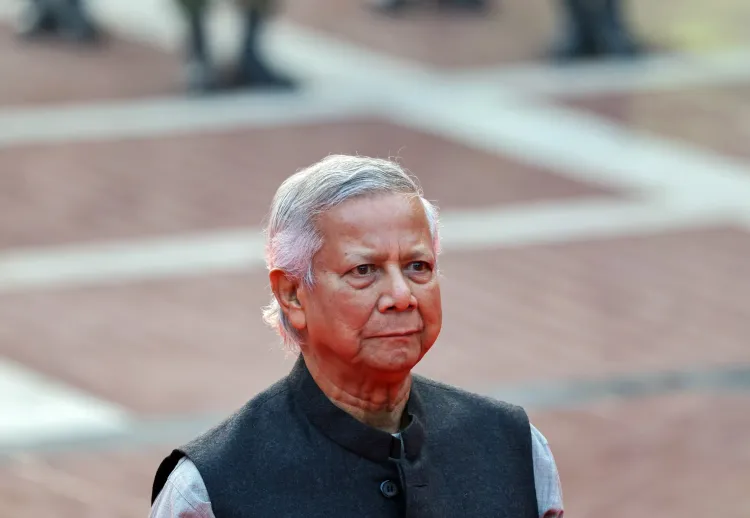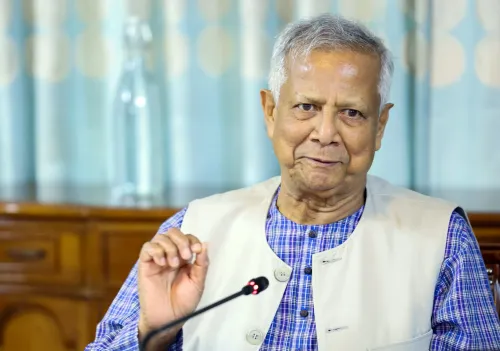Is Bangladesh Facing Regression Under Yunus-led Interim Government?

Synopsis
Key Takeaways
- Political freedoms are under significant pressure.
- Religious intolerance is on the rise, impacting minorities.
- The cultural landscape of Bangladesh is shifting away from secularism.
- Economic confidence is waning due to political instability.
- Increased violence against minorities has been documented.
Dhaka, Oct 21 (NationPress) Following the downfall of the Awami League administration led by Sheikh Hasina in August 2024 and the assumption of Muhammad Yunus as the Chief Advisor to the interim government, Bangladesh appears to be experiencing regression across various dimensions, particularly in political freedom, minority rights, economic security, and most notably, cultural secularism, according to a report released on Tuesday.
The report, which highlights findings from human rights organizations, minority advocacy groups, and journalists, reveals a concerning increase in religious intolerance. It notes that secular symbols are being targeted, folk traditions suppressed, and crucial statues and murals emblematic of Bangladesh’s cultural identity are being defaced or demolished.
A report in 'Times of Oman' indicates that this environment has fostered a climate of fear and self-censorship within the nation, severely undermining the once-vibrant public culture that celebrated diversity.
“Data collected by the Bangladesh Hindu Buddhist Christian Unity Council documents 2,442 instances of communal violence from August 2024 to mid-2025, including murders, sexual assaults, assaults on places of worship, looting, vandalism, and property confiscations,” the report elaborated.
“In the initial half of 2025 alone, there were 258 attacks targeting religious minorities, resulting in 27 murders and 59 assaults on places of worship, with numerous homes and businesses destroyed. The victims comprise men, women, and youth, many of whom have been forced to flee their residences in fear,” it continued.
The report emphasizes that various minority groups have accused the Yunus administration of ignoring these attacks, even when the identities of the perpetrators are known.
“With radical factions like Jamaat-e-Islami resurfacing in public life, there are escalating concerns that the state is moving towards appeasement or is unable to control extremist elements. While formal alliances remain ambiguous, the notable increase in Islamist rhetoric, the cancellation of secular cultural events, and reduced protections for minority rights signify a worrying trend,” it remarked.
The report underscores that religious intolerance is linked to a broader regression, asserting that political freedoms and democratic principles are under considerable strain. It noted the interim government’s efforts to restrict Awami League activities and diminish political diversity.
“The civil service and media face crackdowns, with new regulations allowing for the dismissal of bureaucrats without due process and the revocation of journalists’ credentials. Economic confidence is also diminishing, as foreign investment, business sentiment, and tourism suffer due to both political instability and cultural repression,” the report concluded.









